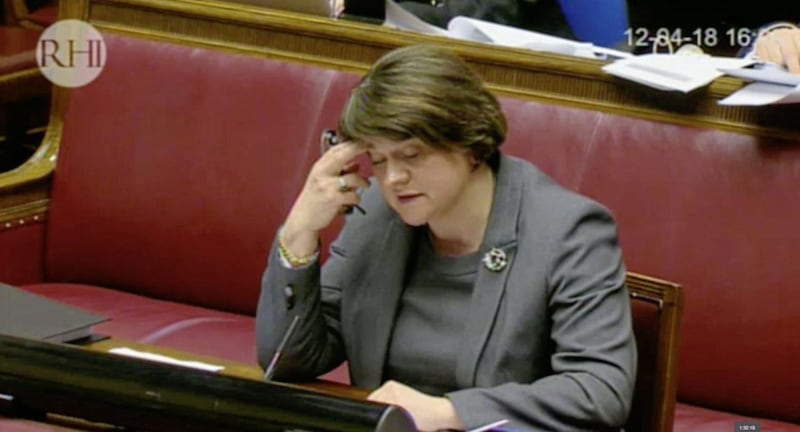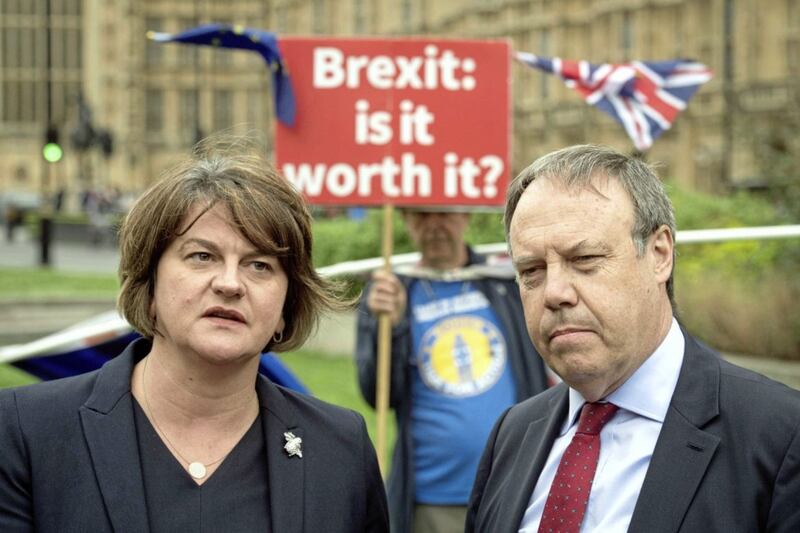ARLENE Foster has endured a turbulent five years as DUP leader.
From the highs of being Stormont's first female first minister and her party holding the balance of power at Westminster, she also suffered the collapse of the institutions over the RHI scandal and betrayal by the British government through the imposition of an Irish Sea border.
Mrs Foster became the DUP's third and youngest leader in December 2015, having begun her political career with the Ulster Unionist Party as a student at Queen's University.
As a youngster, she had been directly impacted by the Troubles when the IRA made an attempt to kill her father - an RUC reservist - at their family home in Roslea in Co Fermanagh.
Read more:
- Prospect of first leadership contest in DUP's history as Arlene Foster faces no confidence vote
- John Manley: Who emerges as new DUP leader will send clear signal about direction of regional politics over coming years
Later, as a teenager attending Enniskillen Collegiate Grammar School, she was also on a school bus which was bombed by the IRA.
After leaving university with a law degree, she remained active in the UUP and was elected to Fermanagh District Council.
In 2003 she joined the assembly as an Ulster Unionist MLA, but the following year defected to Ian Paisley's DUP along with Jeffrey Donaldson.
Mrs Foster rose quickly through the party's ranks, being appointed environment minister in 2007 and serving for seven years in the department for enterprise, trade and investment.
She then became finance minister in 2015 and after succeeding Peter Robinson as party leader, took over as first minister in January 2016.
The DUP would be on the winning side of the Brexit referendum later that year, but by December Mrs Foster found herself at the centre of growing controversy over the Renewable Heat Incentive scheme, launched four years earlier when she was economy minister.
Amid a public dispute with former DUP minister Jonathan Bell and calls for her to step aside during an investigation, Sinn Féin deputy first minister Martin McGuinness resigned and the assembly collapsed in January 2017.
Mrs Foster's actions over RHI would later also come under intense public scrutiny during a lengthy public inquiry.
A disastrous assembly election during which she compared Sinn Féin to a "crocodile" over demands for an Irish language act saw the republican party come within just one assembly seat of the DUP, while unionists also lost their overall majority in the chamber.
And while a snap general election saw the party find itself in a position of huge influence as kingmakers at Westminster, securing extra funding for Northern Ireland as part of a confidence and supply deal with the Conservative Party, the relationship ultimately ended in betrayal with Boris Johnson's Brexit deal with the EU.
Mrs Foster had finally returned to power at Stormont in January 2020 following the restoration of devolution government and earned praise for her leadership role during the Covid crisis.
But with another assembly election looming and opinion polls indicating anger among supporters over the Northern Ireland Protocol and other issues, it appears that persistent rumblings of discontent within sections of the party have finally turned to action.










